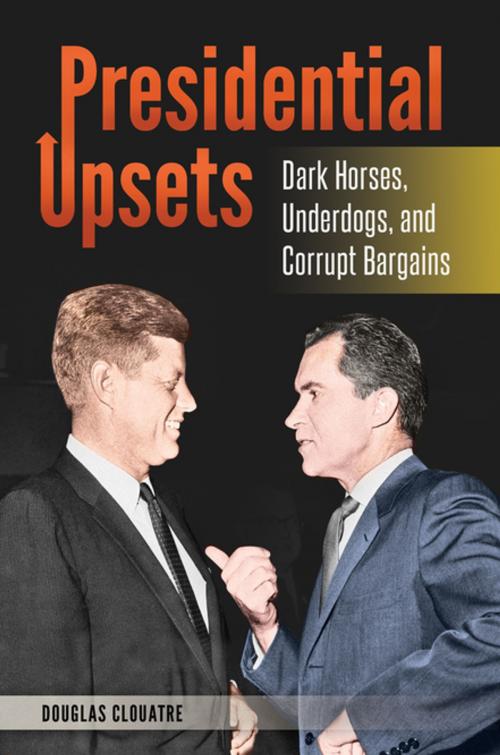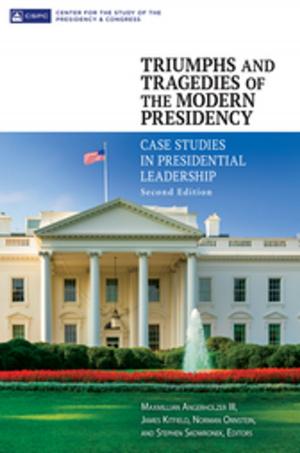Presidential Upsets: Dark Horses, Underdogs, and Corrupt Bargains
Dark Horses, Underdogs, and Corrupt Bargains
Nonfiction, Social & Cultural Studies, Political Science, Government, Political Parties, Elections, Politics, Practical Politics| Author: | Douglas J. Clouatre | ISBN: | 9781440828676 |
| Publisher: | ABC-CLIO | Publication: | January 9, 2013 |
| Imprint: | Praeger | Language: | English |
| Author: | Douglas J. Clouatre |
| ISBN: | 9781440828676 |
| Publisher: | ABC-CLIO |
| Publication: | January 9, 2013 |
| Imprint: | Praeger |
| Language: | English |
Controversial and unexpected presidential election results have occurred throughout American history. Presidential Upsets: Dark Horses, Underdogs, and Corrupt Bargains carefully examines eleven presidential upsets spread across two centuries of American history, ranking these election upsets by order of magnitude and allowing readers to compare the issues and processes of American elections.
After an introductory chapter that establishes the factors that contribute to a presidential upset, such as the comparative advantages of candidates, the issues facing the candidates and electorate, and the political environment during the election, the book offers in-depth analysis of notable surprise election results and explains why the front-running candidate lost. Each major period of American history—such as the Jacksonian period, the Antebellum era, Reconstruction, World War I, the Cold War era, and the post-Cold War era—is covered. The author utilizes primary and secondary sources of material to provide contemporary and historical analysis of these elections, and bases his analysis upon criteria used by political scientists to predict presidential election results.
Controversial and unexpected presidential election results have occurred throughout American history. Presidential Upsets: Dark Horses, Underdogs, and Corrupt Bargains carefully examines eleven presidential upsets spread across two centuries of American history, ranking these election upsets by order of magnitude and allowing readers to compare the issues and processes of American elections.
After an introductory chapter that establishes the factors that contribute to a presidential upset, such as the comparative advantages of candidates, the issues facing the candidates and electorate, and the political environment during the election, the book offers in-depth analysis of notable surprise election results and explains why the front-running candidate lost. Each major period of American history—such as the Jacksonian period, the Antebellum era, Reconstruction, World War I, the Cold War era, and the post-Cold War era—is covered. The author utilizes primary and secondary sources of material to provide contemporary and historical analysis of these elections, and bases his analysis upon criteria used by political scientists to predict presidential election results.










![Cover of the book Understanding U.S. Military Conflicts through Primary Sources [4 volumes] by Douglas J. Clouatre](https://www.kuoky.com/images/2015/november/300x300/9781610699341-JvsI_300x.jpg)




